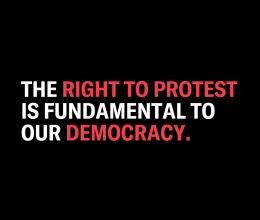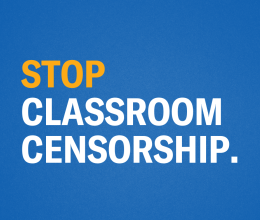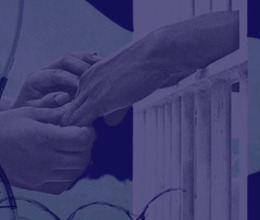
The right to protest is fundamental to our democracy. This right is grounded in the First Amendment's protections for the freedom to speak, the freedom to assemble, and often the freedom to petition. It includes everything from speaking and holding signs to symbolic speech. It also protects arranging peaceful marches and assemblies on certain public lands.
In this moment, we have a right to freely express our political opinions without censorship or violence. Here’s what you need to know before heading out to exercise your constitutionally protected right to protest.
We the People have the constitutional right to protest — and we will fight to ensure no one interferes with that right.







